Nadan Vidošević: "Komerički is Lying That I Asked Him to Launder Money"
ZAGREB, 10 March, 2021 - Former Croatian Chamber of Commerce (HGK) head Nadan Vidošević told the court on Wednesday that he did not participate in fictitious business deals, dismissing as lies claims by Davor Komerički, who turned state's evidence, that Vidošević had asked him to launder money for him.
"The indictment is a cobweb and I know why Komerički gave a false testimony... so that he is freed from criminal charges and to have his company's accounts unblocked. There were no fictitious deals and Komerički is the only witness the prosecution has," Vidošević said at the Zagreb County Court while presenting his defence in a case dubbed Remorker.
Vidošević repeated several times during the presentation of his defence that he and his associates had not caused any damage to the HGK or the Kraš confectionery company, and that they had not siphoned money from them. "There is not one piece of material evidence against me, nor any message or text message that I might have exchanged," he said.
He also said that he had been barraged by some media outlets even before the trial started and that two-thirds of the indictment were based on his property whose value some of the media had exaggerated and which, he said, he had obtained legally.
Vidošević added that during a search of his home, documents referring to his artworks and the construction of his house in Gorski Kotar disappeared, of which he accused the police anti-corruption office PNUSKOK, saying it had made his defence more difficult. He also said that the expert estimate of the value of his property was "grotesque."
Defence presented four years since trial started
Vidošević's defence comes four years after the trial started in the Remorker case in which the former HGK head was accused of siphoning money from the HGK which he had led for years.
Vidošević's long-standing associate Zdenka Peternel was also accused in the case as was Josipa Mladinov, Jasna Mikić and Jadranka Ivčić, who have all pleaded not guilty.
Four other co-defendants pleaded guilty prior to the trial and were convicted after plea-bargaining with the prosecution. They are the key figures in the scandal - Igor Premilovac, who was the first to own up to issuing fictitious invoices via his Czech-based company Remorker and returning laundered money to Croatia for a commission; Davor Komerički, a marketing expert who accused Vidošević of being involved in a chain that was siphoning money from the HGK; real estate agent Vesna Rodić who advised Vidošević, and Jasna Mrakovčić Grubić, who admitted that she had siphoned money from the HGK with Vidošević by faking artwork purchases.
The USKOK anti-corruption office pressed charges against Vidošević and the eight other defendants in July 2015. USKOK proposed that assets equivalent to the HRK 33.4 million that was allegedly siphoned be confiscated from Vidošević.
However, a new expert analysis has shown that Vidošević acquired 26 properties and 444 works of art, worth HRK 22.3 million, legally and that property worth only HRK 9.2 million remains suspicious.
In mid-December 2020, USKOK withdrew its motion to expand the confiscation of Vidošević's assets after it was determined that the discrepancy between his income and expenditure was smaller than the value of the assets he was charged with having illegally gained.
3 in 4 Croats Aged 20 to 64 to be in Work Under 2030 Employment Target
ZAGREB, 6 March, 2021 - Croatia's 2030 employment target is to have 75% of adults in work, and currently only two thirds (66%) of the adult population are employed, the Večernji List daily reported on Saturday.
The current Portuguese presidency of the Council of the European Union is organising a summit meeting on social affairs in May, and the EU is supposed to endorse new goals in this sector which should be accomplished until the end of this decade.
One of the goals is that at least 78 of 100 people aged 20 to 64 should be in employment by the end of this decade.
Three of four Croats aged between 20-64 to be employed
It is up to each member state to define its targets, and Zagreb plans to have three fifths people in the 20-64 age cohort in employment until 2030. For this target to be met, the country should create new 200,000 jobs in the coming years.
Currently, only Greece and Italy fare worse than Croatia in this regard, where only three fifths of adults (60%) are employed.
Sweden tops the EU ranking with 82 out of 100 adults being employed, and Germany follows with 80%.
Zagreb Stock Exchange Indices Drop Amid Slightly Higher Turnover
ZAGREB, 5 March, 2021 - The main Zagreb Stock Exchange (ZSE) indices fell on Friday amid a slightly higher turnover than the previous day, with the Crobex dropping by 0.85% to 1,829 and the Crobex10 by 0.52% to 1,139.
Week-on-week, the Crobex slid by 0.2%, while the Crobex10 increased by 0.63%.
All sectoral indices finished the day in the red, with the tourism index showing the biggest decline, of 1.35%.
Today's regular turnover was HRK 5.7 million, or HRK 1.7 million more than on Thursday.
The stock of the HT telecommunications company was the only one to cross the one million kuna mark, and it generated a turnover of slightly more than HRK 2 million. Its price went up by 1.1% to HRK 183 per share.
The company today said that a meeting of the Supervisory Board would be held on Tuesday, 9 March, when annual financial reports and the proposal for the use of profit for 2020 would be determined, and on Wednesday the revised financial reports the proposal for the use of profit would be published.
The stock of the Valamar Riviera tourism company turned over HRK 773,000, its price dropping by 2.62% to HRK 29.7 per share.
Thirty-eight stocks traded today, with 10 of them registering share price increases, 22 recording price decreases and sixremaining stable in price.
(€1 = 7.576668)
3,439 New Cars Sold in Croatia in February, Down 4.2% Y-O-Y
ZAGREB, 5 March, 2021 - A total of 3,439 new passenger cars were sold in Croatia in February 2021, 4.2% fewer than in the same month in 2020, according to the data released by the Promocija Plus market research agency on Friday.
In January 2021, 2,915 new cars were sold, a decrease of 19.7% compared with January 2020. The January drop affected cumulative data for the first two months of 2021, when a total of 6,345 vehicles were sold, or 12.95% fewer than in January-February 2020.
In the first two months of this year the best-selling car make was Volkswagen, with 1,187 units sold and a market share of 18.68%. The only other carmaker with a market share exceeding 10% was Škoda, with 823 cars sold in the January-February period and a market share of 12.95%.
Fiat was third with 482 cars sold, followed by Dacia and Hyundai, with 328 units sold each, and Renault with 327 vehicles sold.
In February alone, the most sought-after car model was the Škoda Octavia, with 227 units sold, ahead of the Fiat Panda (215), the VW T-Roc (150), the Dacia Duster (138) and the Hyundai Tucson (126).
In January and February, 3,271 petrol cars were sold, accounting for 51.5% of total sales, while diesel vehicles accounted for 31.3% with 1,986 units sold. Also sold were 830 hybrid cars (13.1%), 193 vehicles powered by natural gas (3%) and 74 electric cars (1.2%).
Zagreb Stock Exchange Main Indices Stable
ZAGREB, 4 March, 2021 - The Zagreb Stock Exchange Crobex index increased 0.07% to 1,845 points on Thursday, while the Crobex10 decreased 0.07% to 1,145 points, with a regular turnover of just under HRK 4 million.
No stock crossed the million kuna mark. The most traded stock was the Podravka food company, turning over HRK 786,000. It closed at HRK 518 per share, up 0.39%.
Forty-one stocks traded today, 16 ending with share price increases, 17 with share price decreases and eight ending stable.
(€1 = HRK 7.573946)
Banks' Net Profits Drop 53% in 2020, Recovery Expected This Year
ZAGREB, 4 March, 2021 - In 2020 banks' net profits were more than halved, while this year corporate and household lending is expected to pick up and demand for housing loans to increase, it was said on Thursday at a digital press briefing of the Croatian Banking Association (HUB).
Also presented was HUB's analysis of the banking business in 2020 and the response to the COVID-19 crisis which, it was said, resulted in a significant deterioration of banks' business results.
Net profits in 2020 dropped by 53.3% from 2019, to HRK 2.7 billion, mainly due to a drop in operating income and a growth in value corrections of financial assets --- amortisation expenses.
Net interest income dropped by 5.7% on the year, net fee and commission income by 10.5% and net business income by 9.9%. "This means that banks' income dropped a little more than Croatia's GDP in 2020," HUB director Zdenko Adrović said. Last year GDP contracted by 8.4%.
Banks' capital ratio at the end of 2020 was 24.9%, ranking them among the best capitalised banks in the world, which facilitates lending and deposit growth as well as low interest rates, he said.
Deposits and lending increased in 2020
In 2020 household deposits went up 6.1% on the year to HRK 224.5 billion, while in January 2021 they were up 7.1% on the year.
The fast deposit growth is mainly a result of giving up spending or the impossibility to spend part of one's income, said Adrović.
In 2020 household lending went up by 2.3%, with housing loans increasing by 7-8%. In Q4 alone, housing loans were up 14% on the year, while non-purpose cash loans dropped by 1% and overdrafts on transaction accounts by 5%.
Adrović said he believed that corporate and household lending would pick up in the coming period due to a rise in demand for housing loans. Part of the demand comes from the government's subsidised housing scheme and it is also due to last year's earthquakes, he added.
This year demand for housing and corporate loans is expected to improve and, thanks to existing interest rates, result in higher income and net profit for banks, Adrović said.
Last year corporate loans went up 5.3% while this past January they increased by 5.7%, he added.
Thanks to an average interest on long-term housing loans of 2.9% and no big pressure on interest growth, Croatia is doing very well, he said, noting that interest rates were markedly lower than in more developed countries which have been in the EU longer than Croatia, such as the Czech Republic, Hungary and Latvia.
(€1 = HRK 7.5)
COVID Pandemic Identified as Top Business Risk in Croatia
ZAGREB, 23 January, 2021 - The COVID-19 pandemic is perceived as the top business risk in Croatia in 2021, cyber incidents rank second, while changes in legislation and regulations and lack of skilled labour force share the third place, according to the Allianz Risk Barometer.
The tenth annual edition of the barometer, issued recently, is based on the findings of a survey conducted by Allianz Global Corporate & Specialty (AGCS) following interviews of 2,769 specialists and experts from 92 countries and territories. Some of the respondents are Chief Executive Officers, risk consultants, underwriters, senior managers, claims experts in the corporate insurance segment of Allianz Global Corporate & Specialty and other Allianz entities.
The survey was conducted in Croatia before the 29 December devastating earthquake in the Petrinja region.
As many as 54% of the respondents in the country cite the pandemic as the biggest risk, while cyber incidents follow (31%), and changes in legislation and regulations have been stated as a business risk in 26% of the answers. In the previous four years, this was identified as the top business risk, according to this barometer.
The shortage of a skilled labour force is also mentioned as a business risk in 26% of the interviews in Croatia.
Allianz Croatia CEO Daniel Matić was quoted as saying that the impact of the pandemic and the COVID disease on doing business in Croatia is perceived in the same way as in most countries.
Matić speculates that had the survey been conducted after the quakes in Petrinja and Glina, the risk called "Natural catastrophes" would have had climbed to a higher position on the barometer.
Matić underscores the labour shortage as a high risk for doing business in Croatia.
Many industries, including tourism and the ICT sector, are faced with this problem, he said.
The importance of this issue can be seen in the example of the necessary labour force for rapid repair response in the aftermath of the quake in Petrinja, Sisak and Glina, he explained.
"Given the unprecedented disruption caused by the coronavirus outbreak, it is no surprise that business interruption and pandemic outbreak top the 2021 Allianz Risk Barometer," according to the explanation given on the Allianz Global Corporate & Specialty web site.
"The pandemic is the biggest climber this year (up 15 positions), with cyber incidents ranking a close third. All three risks – and many of the others in this year’s top 10 – are interlinked, demonstrating the growing vulnerabilities and uncertainty of our highly globalized and connected world, where actions in one place can spread rapidly to have global effects. Looking forward, the pandemic shows companies need to prepare for a wider range of business interruption triggers and extreme events than previously. Building greater resilience in supply chains and business models will be critical for managing future exposures."
The top ten business risks globally identified in the barometer are: Business Interruption, Pandemic outbreak, Cyber incidents, Market developments, Changes in legislation and regulation, Natural catastrophes, as well as Fire and explosion, then Macroeconomic developments, Climate change/increasing volatility of weather, and Political risks and violence.
Faculty of Economics University of Zagreb Celebrates 100 Years
ZAGREB December 5, 2020 – With over 9000 students currently enrolled, the Faculty of Economics University of Zagreb is the largest faculty in Croatia. In 2020, this internationally renowned institution celebrates its 100th birthday, so TCN decided to take a closer look.
Every other student you meet in Croatia seems to study economy. It makes you wonder where they all go to after their studies are complete. Are there really so many positions for economists in Croatia?
In 2020, the Faculty of Economics University of Zagreb celebrates its 100th birthday. The long list of its famous former students gives a clue to where all the Croatian economists go – the tourism sector, diplomacy and international relations, business, politics and government.
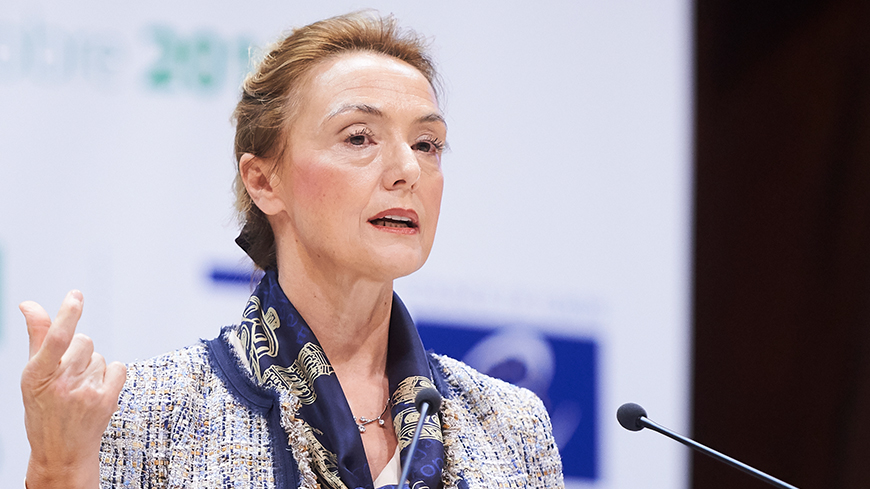 Marija Pejčinović Burić, a graduate of the Faculty of Economics of the University of Zagreb and the current Secretary General of the Council of Europe. After graduating, like Savka Dabčević-Kučar, she became o doctor of economics and before taking her current position served as Croatia's Deputy Prime Minister and Minister of Foreign and European Affairs © Council of Europe
Marija Pejčinović Burić, a graduate of the Faculty of Economics of the University of Zagreb and the current Secretary General of the Council of Europe. After graduating, like Savka Dabčević-Kučar, she became o doctor of economics and before taking her current position served as Croatia's Deputy Prime Minister and Minister of Foreign and European Affairs © Council of Europe
Graduates of the Faculty of Economics University of Zagreb have served as mayors of Zagreb and Split, Deputy Prime Minister of Croatia, Minister of Finance, Minister of the Economy, Secretary-General of the Council of Europe, Governers of the Croatian National Bank, Vice-President of the UN World Food Council, President of the Croatian Football Association, Minister of Environmental and Nature Protection, special advisors to the President of Croatia and countless university professors, including several former rectors of the University of Zagreb. Within its graduate professors, it has produced no less than 19 full members of the prestigious Croatian Academy of Sciences and Arts, more than any other single institution in the country.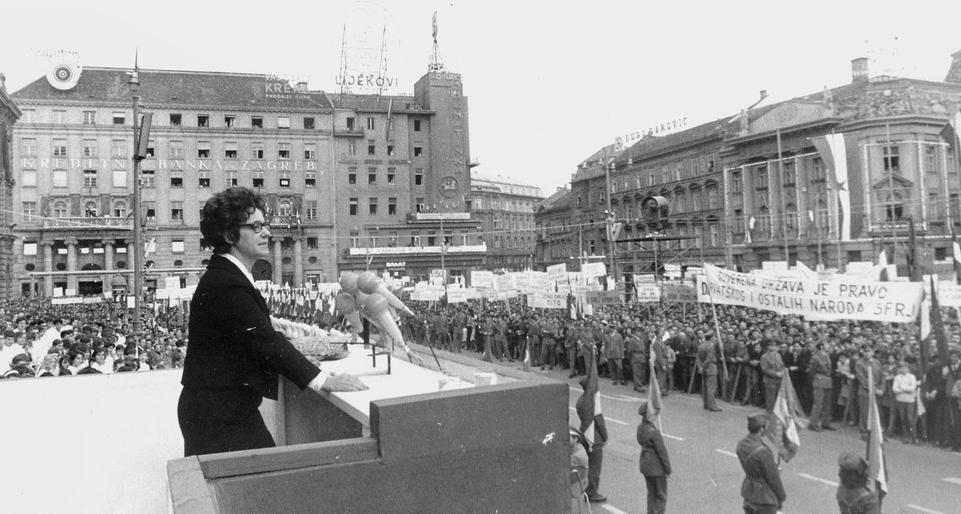 Savka Dabčević-Kučar, a graduate of the Faculty of Economics of the University of Zagreb. Born on Korčula, she became an anti-fascist in World War II, joining the partisans after her brother was beaten by fascists. After graduating, she continued to study at the faculty and became one of the first doctors of economics in Croatia, raising eyebrows by choosing to write her doctorate dissertation about a non-Marxist economic theorist (Englishman John Maynard Keynes). She became a professor at the faculty in the 1950s and despite her great advances in political life, remained a committed teacher at the faculty until 1971. In 1967, she was elected President of the Socialist Republic of Croatia. In 1969, she moved to an even more important position - that of president of the Central Committee of the League of Communists of Croatia. She was the first woman in Europe to be appointed head of government of a political entity and the first female in Croatia to hold an office equivalent to a head of government. In this picture, she addressed supporters on Ban Jelacic Square Zagreb during the movement called the Croatian Spring, which called for greater autonomy for Croatia. At the address, thousands cheered her as “Savka, queen of the Croats”. For her pivotal role in the movement, she was removed from her positions and public life and retired. She returned to politics in 1990 upon the collapse of communism in Europe and during the Croatian war of independence was one of the few politicians who visited the front lines of battle in Slavonia, Petrinja, Pokupski and the Dalmatian hinterland
Savka Dabčević-Kučar, a graduate of the Faculty of Economics of the University of Zagreb. Born on Korčula, she became an anti-fascist in World War II, joining the partisans after her brother was beaten by fascists. After graduating, she continued to study at the faculty and became one of the first doctors of economics in Croatia, raising eyebrows by choosing to write her doctorate dissertation about a non-Marxist economic theorist (Englishman John Maynard Keynes). She became a professor at the faculty in the 1950s and despite her great advances in political life, remained a committed teacher at the faculty until 1971. In 1967, she was elected President of the Socialist Republic of Croatia. In 1969, she moved to an even more important position - that of president of the Central Committee of the League of Communists of Croatia. She was the first woman in Europe to be appointed head of government of a political entity and the first female in Croatia to hold an office equivalent to a head of government. In this picture, she addressed supporters on Ban Jelacic Square Zagreb during the movement called the Croatian Spring, which called for greater autonomy for Croatia. At the address, thousands cheered her as “Savka, queen of the Croats”. For her pivotal role in the movement, she was removed from her positions and public life and retired. She returned to politics in 1990 upon the collapse of communism in Europe and during the Croatian war of independence was one of the few politicians who visited the front lines of battle in Slavonia, Petrinja, Pokupski and the Dalmatian hinterland
The Faculty of Economics University of Zagreb is the largest faculty in the country. Over its 100 year history, it has established itself as an internationally respected institution. Today, it has around 9000 persons enrolled, caters for international students with some courses in English and has produced over 86, 000 graduates, including 856 doctors of science.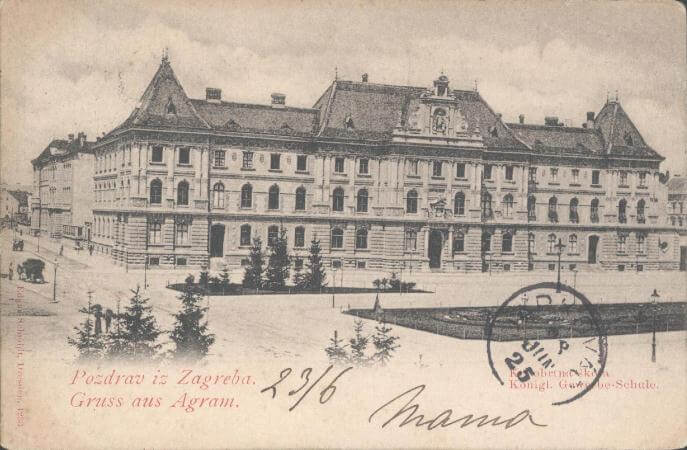 In its infancy, students of the College of Trade and Transport were taught at the Technical College, which is today the Museum of Arts and Crafts in Zagreb © National and University Library in Zagreb
In its infancy, students of the College of Trade and Transport were taught at the Technical College, which is today the Museum of Arts and Crafts in Zagreb © National and University Library in Zagreb
The history of the Faculty of Economics University of Zagreb starts with the opening in 1920 of its forerunner, the Zagreb College of Trade and Transport. Its purpose was to educate in the areas of banking, domestic and international trade, transport, consular services, insurance and the education of teachers. Its courses lasted three years and it proved so popular that in the academic year 1923/24, some 1,125 students were enrolled.
The institution held college status until 1925 when Stjepan Radić became the Minister of Education. It must have been unusual for Radić to find himself as part of the government of the Kingdom of Serbs, Croats and Slovenes, the state which preceded the Kingdom of Yugoslavia. Today, Radić is best remembered as a politician outspoken in his advocacy of autonomy for Croatia. Before his appointment to the government, he had always done so in opposition. Indeed, he had been imprisoned several times for his views, which were proclaimed loudly in his writings or in person (he was a gifted public speaker). As recently as March 1925 he had been in prison but, when the political party of which he was a member officially recognised the monarchy and the state constitution, he was freed. In a remarkable turnaround, before the year's end, he was a minister in the government.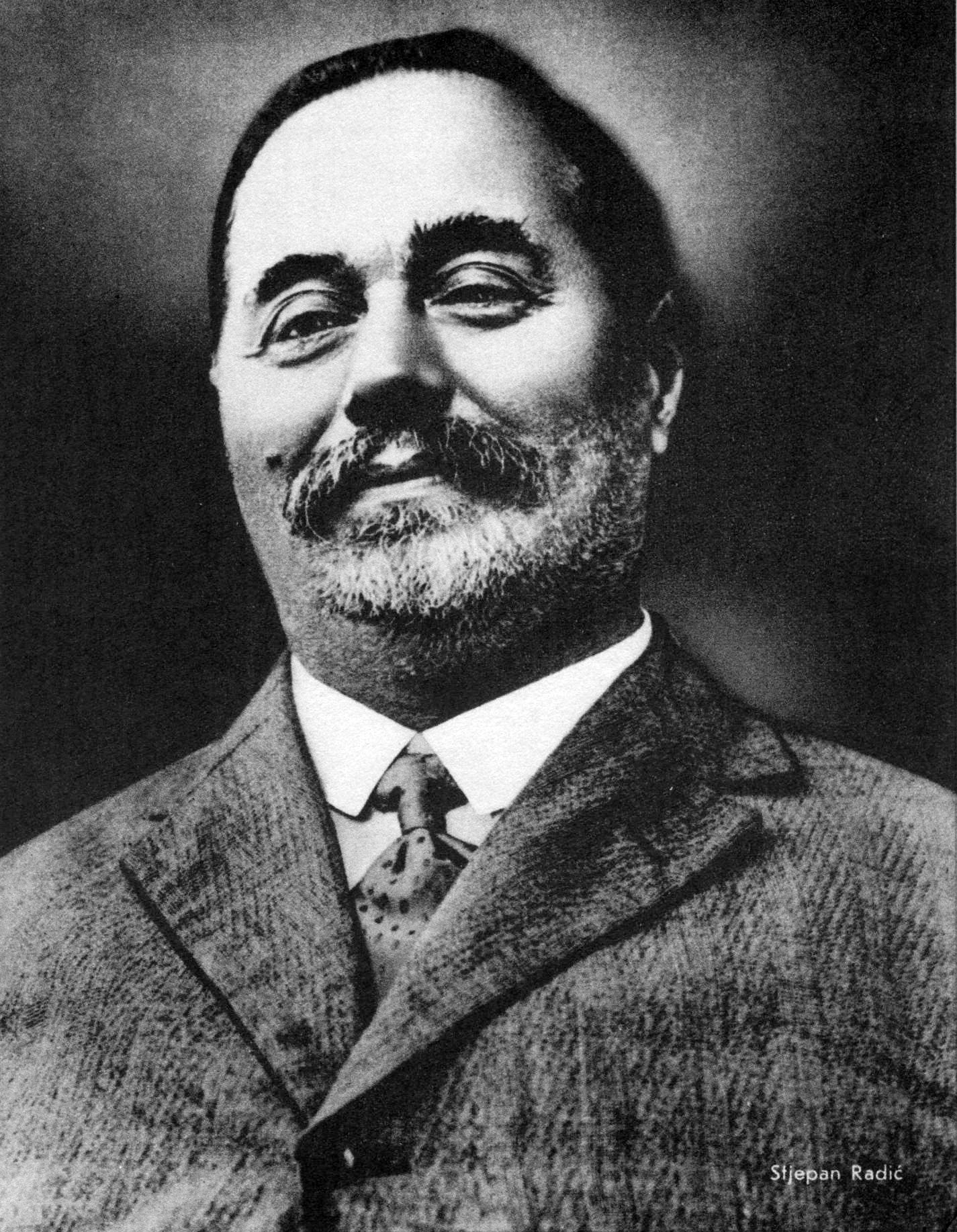 Stjepan Radić, pictured in the 1920s © public domain. In 1895 Radić was sent to prison for the public burning of the Hungarian flag in Zagreb – alongside Antun Dabčević, the father of Savka Dabčević-Kučar.
Stjepan Radić, pictured in the 1920s © public domain. In 1895 Radić was sent to prison for the public burning of the Hungarian flag in Zagreb – alongside Antun Dabčević, the father of Savka Dabčević-Kučar.
Stjepan Radić's desire for Croatian autonomy was not born from the ideals of the political class of Zagreb. The ninth of eleven children, born to a peasant family in a small village on the banks of the Sava river, just north of Sisak, Radić was very much a representative of the people whence he came. To him (and others in his family – his brother and nephew also being prominent politicians), education had the most important role to play in emancipation. He had lived in poverty in order to complete his own - after being banned from university-level educational institutions throughout the whole of the Austro-Hungarian empire for his protests against the state, he travelled penniless to Russia, France and Switzerland to complete his studies. In the latter, finance was one of his chosen subjects.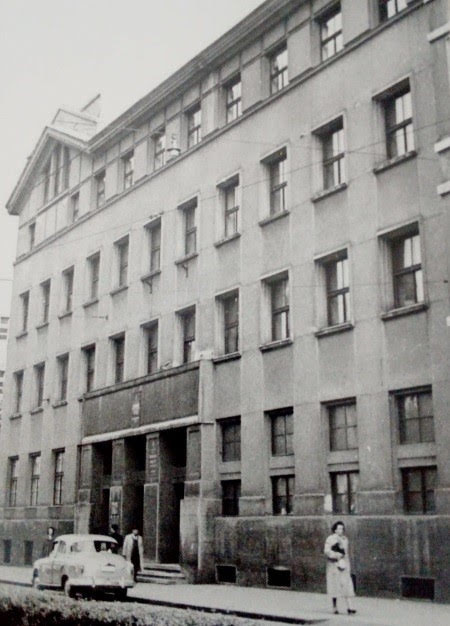 The first dedicated building of the Higher School of Economics and Commerce was located on the corner of Bauerova and Zvonirmirova © Faculty of Economics University of Zagreb
The first dedicated building of the Higher School of Economics and Commerce was located on the corner of Bauerova and Zvonirmirova © Faculty of Economics University of Zagreb
Under Radić's spell in office, the Zagreb College of Trade and Transport became the Higher School of Economics and Commerce. Its courses extended to four years, it attained university status. With no building designated to the increasingly popular institution, students had sometimes been taught at the Technical College (today's Museum of Arts and Crafts) and in parts of what is now the Mimara Museum. A dedicated home for the faculty was authorised and its construction started in 1927. Classes began at the faculty, located on the corner of Bauerova and Zvonimirova, in 1928, but within the decade the institution had outgrown its home and a plot of land in Svetice was acquired in order to build a new, larger facility. Its construction was interrupted by the Second World War and students would end up being taught on the Bauerova and Zvonimirova site all the way up to 1952.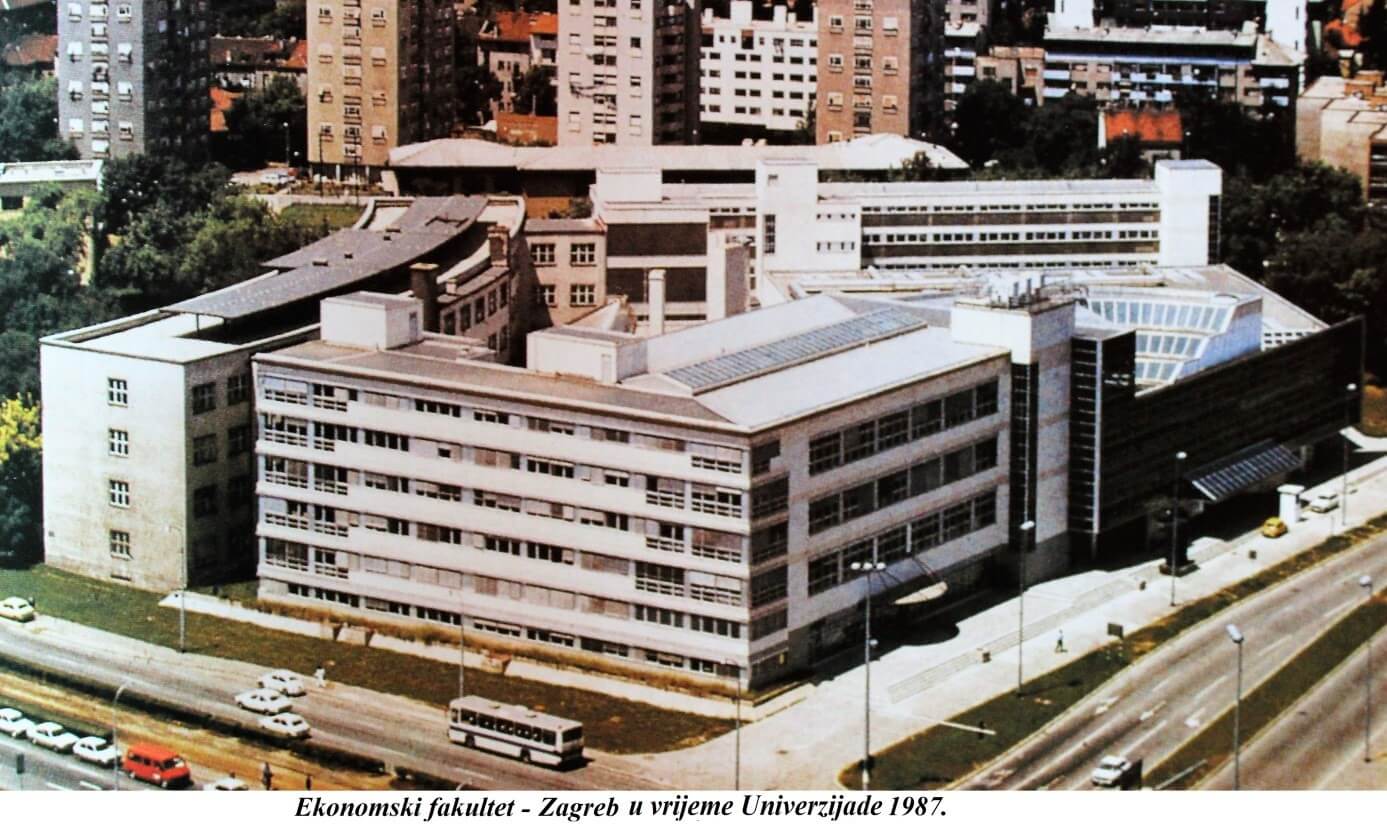 The faculty's modern building, pictured in 1987. Today, the faculty has 17 departments - Finance, Demography, Economic Theory, Business Economics, Informatics, Macroeconomics and Economic Development, Marketing, Mathematics, International Economics, Business in Foreign Languages, Organization and Management, Law, Accounting, Statistics, Trade and International Business, Tourism, Physical Education and Health © Faculty of Economics University of Zagreb
The faculty's modern building, pictured in 1987. Today, the faculty has 17 departments - Finance, Demography, Economic Theory, Business Economics, Informatics, Macroeconomics and Economic Development, Marketing, Mathematics, International Economics, Business in Foreign Languages, Organization and Management, Law, Accounting, Statistics, Trade and International Business, Tourism, Physical Education and Health © Faculty of Economics University of Zagreb
In 1947, the Higher School of Economics and Commerce became the Faculty of Economics University of Zagreb. In 1952, the faculty officially moved to the new site in Svetice. In 1968 it expanded once more when it merged with the 12-year-old College of Economics. Since then, the building at Svetice has received major upgrades and further facilities of the faculty can now also be found at the university campus in Borongaj, in Varaždin, in Koprivnica and in Bjelovar. After a century of existence, the Faculty of Economics University of Zagreb's longstanding difficulties to meet the popularity of its courses with the space available are now over. Not only can they accommodate every Croatian economy student who makes the grade, but they are also able to offer places to some of the best international students. It would surely come as no surprise if they are still educating the future elites of business, banking, finance and politics in another 100 years.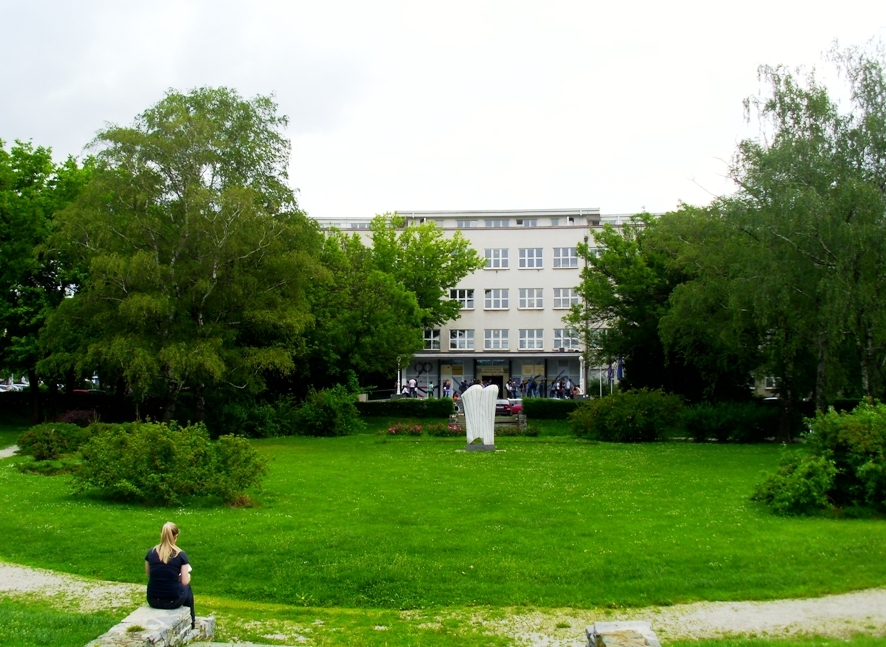
The Faculty of Economics University of Zagreb site in Svetice, as seen from its garden © Wolf - Pidgeon
Higher Interest in Croatia among Foreign Investors, Conference Hears
ZAGREB, Sept 24, 2020 - There is a markedly higher interest in Croatia among foreign investors, partly owing to EU membership and partly to the business transactions of recent years, Daniel Radic of the KPMG consulting firm said on Thursday at the ''Investing in Times of Uncertainty'' conference.
Companies from the Agrokor system have also put Croatia on the investors' map, he said, adding that he did not see the COVID-19 pandemic as having affected investor confidence.
The conference was organised by the Enterprise Investors fund and the American Chamber of Commerce in Croatia.
Enterprise Investors has been continuously looking for new investment opportunities in the Adriatic region, including Croatia, while the Studenac retail chain has identified potential acquisitions expected to be made by next year, said Michal Kedzia, a partner in the fund.
Enterprise Investors is one of the leading private equity funds in Central and Eastern Europe. Last year it bought the Pan-Pak bakeries chain and Studenac in Croatia, having previously bought the Intersport sporting gear chain.
Kedzia said the fund was looking for new investment opportunities not just in retail but in IT and technology as well.
Asked if the fund was interested in investing in Croatia's Ledo frozen food producer, he said the fund, as a rule, did not comment on transactions.
The question was put because the Fortenova group said this week that it had received a score of non-binding offers for Ledo Plus, Ledo Citluk and Frikom, which make up the Ledo group.
EBRD focused on green investment
The European Bank for Reconstruction and Development is focused on helping the private sector, notably green investment such as renewables, the food industry and the IT sector, said Miljan Zdrale, head of the EBRD agriculture sector for Central and Southeast Europe.
The EBRD's goal is for green investment to account for 50 percent of all investment by 2025, he added.
For the latest travel info, bookmark our main travel info article, which is updated daily.
Read the Croatian Travel Update in your language - now available in 24 languages
Lifestyle Check IN Presented to Public for First Time
September 19, 2020 - On Friday, Lifestyle Check IN was presented to the local public for the first time on the terrace of the Radisson Blu Resort in Split. It is a series of business events whose previous two editions were held in Austria.
Lifestyle Check IN is an event whose goal is to connect Croatian companies with European ones, whose products and services nurture the philosophy of comfortable living, such as fashion, cosmetics, home decoration, and the nautical industry.
"Lifestyle Check IN will be held in Split because this beautiful city embodies the philosophy of comfortable and beautiful living. Split is an ideal place for living, but also for business, so on October 15, in addition to Croatian lifestyle brands, their colleagues from Austria will present their products to the domestic business and the general public.", said Monica Ioanitescu, the conceptual originator and project director.
Although most brands are aimed at women, the offer won't neglect men or children - men will have a cigar area, while children will enjoy a dedicated playroom organized with entertainment and educational programs for all ages.
President of the Split County Chamber - CCC, Joze Tomaš, gave his full support to the organization of this business event.
The event was also joined by a famous Austrian entrepreneur and fashion designer, Dali Oleschko, and local entrepreneurs were introduced by Marko Bilić from Cigar Club Mareva. Jan de Jong, entrepreneur and currently the most prominent member of the Split expat community, pointed out that "people here complain a lot and do nothing, and it is these holes that are ideal for those who have an idea and are enterprising".
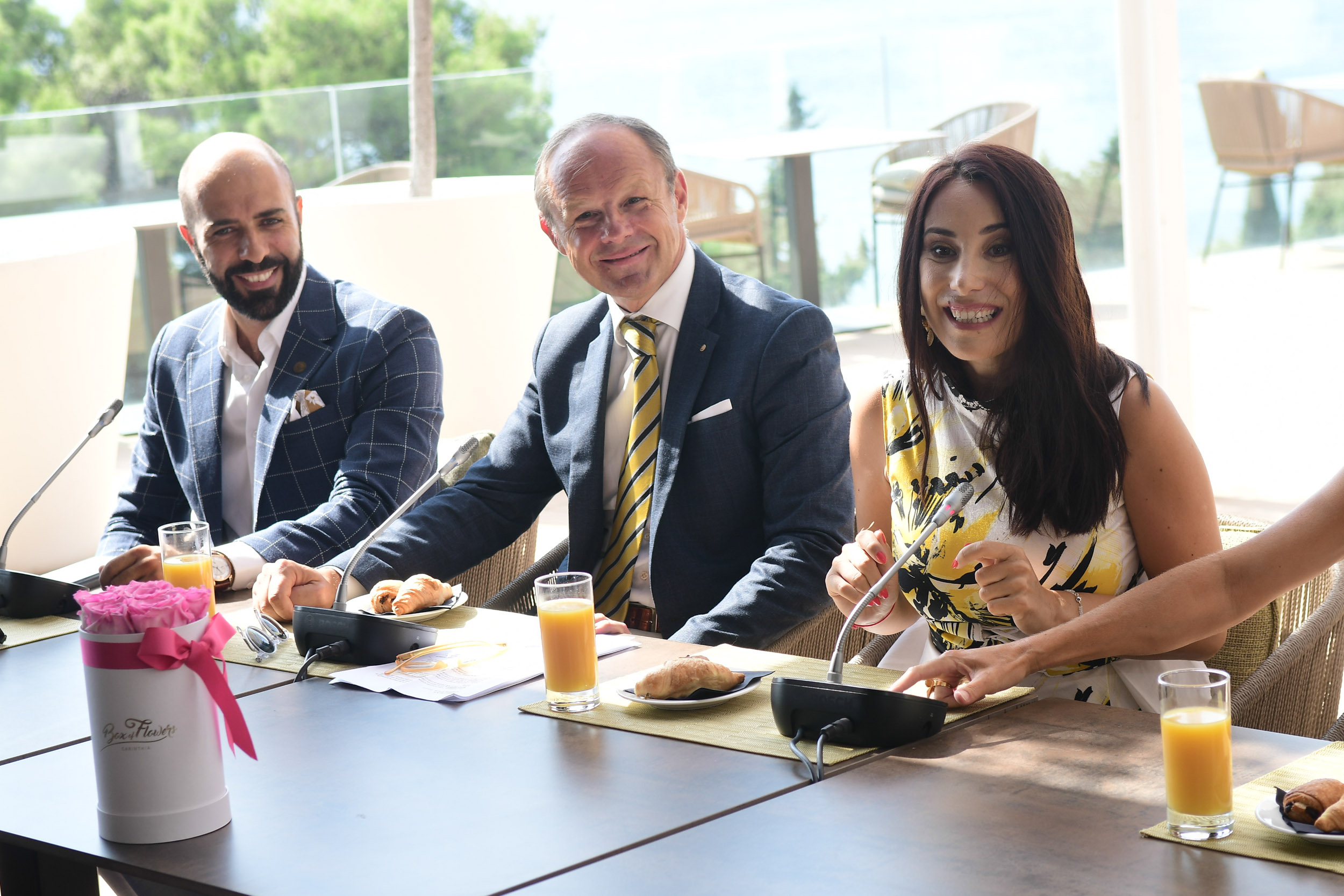
At the first event to take place on October 15, the partner country is Austria, and three more events are planned in the first half of 2021, when Split will be hosted by entrepreneurs from Romania, Italy and Slovenia.
"The event is open to all, we invite domestic business, but also the general public, provided that the number of available tickets will be defined later and in accordance with the recommendations of experts. Health is our number one priority, but entrepreneurship must not stop, we just need to invest a little more creativity to continue to connect and do business together in new circumstances", Monica concluded.
This event supports the association "Dancer with Cancer"and the organization is carried out with the support of the sponsor "Juelstox international", with a collection of jewelry from Sri Lanka and the Romanian brand "VeroSlim"

For the latest travel info, bookmark our main travel info article, which is updated daily.
Read the Croatian Travel Update in your language - now available in 24 languages


